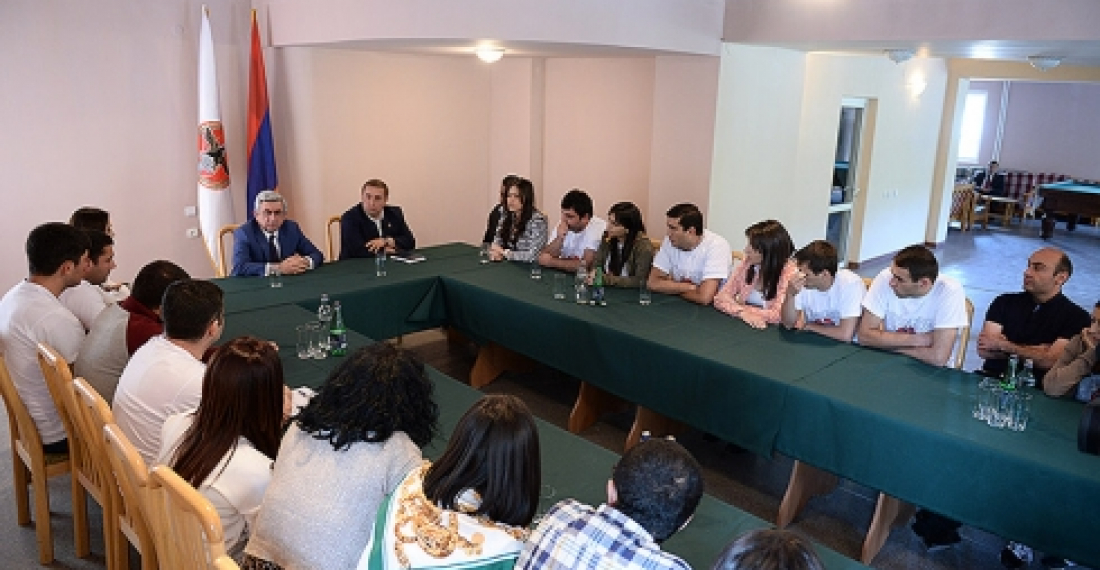The Armenian President Serzh Sargsyan has stated that the question of Nagorno-Karabakh joining the Eurasian Economic Union was never under discussion since Karabakh is not part of Armenia. Sargsyan was referring to a controversy that has raged for the last days after the launch of the Eurasian Economic Union in Astana last week. During the meeting of the Heads of State Russia, Kazakhstan and Belarus signed the treaty of accession. Armenia was also present in the Astana meeting and is expected to join the Union in the coming weeks. But in Astana Kazakh President Nursultan Nazarbayev created controversy when he said that they had received a letter from the President of Azerbaijan requesting that Armenia joins the Union only in the framework of its internationally recognised borders. Sargsyan described the remarks of Nazarbayev as "unpleasant" but not damaging.
Sargsyan was asked about the issue at a meeting with leaders of the youth movement of his ruling Republican Party of Armenia which took place over the weekend in the town of Tsakhkadzor. The Armenian President told the youth:
"First of all I want to say there is no obstacle to Armenia's accession to the Customs Union. When we stated there are 2-3 issues left, we meant 2-3 technical problems regarding trade relations. As to Nazarbayev's remark, it is wrong to speak about borders. What borders does one mean? The Karabakh issue is not to be settled in the framework of the Customs Union. Who said we are going to join the Customs Union together with Karabakh? This cannot happen, as Karabakh, at least according to our legislation, and at least in our perception, is not a part of Armenia. Accession to the Customs Union obviously contributes to the settlement of Nagorno-Karabakh conflict. Of course, Nazarbayev's remarks were unpleasant, but they will not damage our position" he said.
source: commonspace.eu with the Press Service of the president of Armenia
photo: The Armenian President Serzh Sargsyan with leaders of the youth wing of the Republican Party of Armenia at Tsakhkadzor on 31 May 2014. (picture courtesy of the Presss Service of the President of Armenia).







